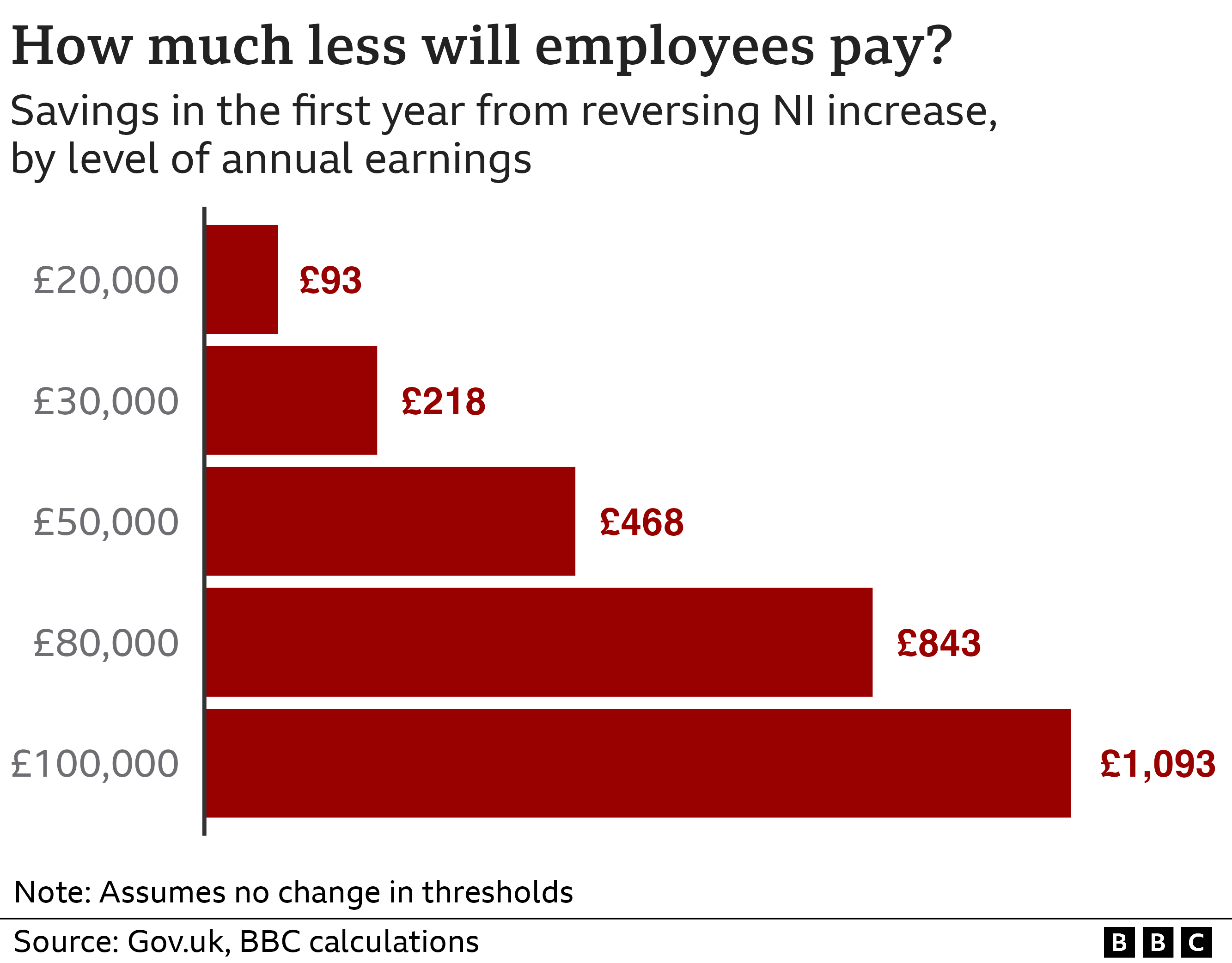According to the BBC.
Many people will keep more of their pay when a tax increase is scrapped in November.
The government is reversing the 1.25p in the pound rise in National Insurance (NI) introduced in April.
Will the National Insurance cut save me money?
The 1.25p in the pound increase will be reversed from 6 November. The decision was confirmed in the government’s mini-budget.
For employees under pension age who earn less than £12,570 a year, the move will make no difference – because they don’t pay NI.
Above that income level, the amount saved increases as earnings do.
So higher earners stand to benefit more than people on lower incomes – although higher earners will still contribute more tax overall.

Most employees will receive the cut in their November pay packets. People who pay the basic rate of income tax will gain about £75 on average in 2022-23, rising to £175 in the following year.
Higher rate taxpayers will gain approximately £300 in 2022-23, increasing to £700 in 2023-24
The majority of businesses will also see a reduction in their NI bills. Each business will save an average of £9,600 each in 2023-24 according to the government.
- National Insurance rise to be reversed in November
Who pays National Insurance?
NI is a tax paid by employees, employers and the self-employed:
- employees pay NI on their wages as well as income tax
- employers pay extra NI contributions for staff
- the self-employed pay NI on their profits
NI contributes to the cost of benefits and the state pension. However, the government can borrow from the NI fund to help pay for other projects. NI raises a lot of money, £158bn last year according to HMRC.
Whether you receive the full state pension depends on your NI record.
- Why do we pay National Insurance?
How has National Insurance changed?
Since 6 April, workers and employers have been paying an extra 1.25p in the pound.
The increase was part of the government’s plan to fund the NHS and social care.
It took the rate of NI to 13.25%. That meant the government went back on its 2019 election manifesto promise not to raise the tax.
The NI increase was due to be replaced by a new Health and Social Care Levy – at a rate of 1.25% – in April 2023.
But the government has now scrapped these plans, while reducing the NI rate back to 12%
How will the tax cut be funded?
The 1.25 percentage point increase in NI was supposed to raise £12bn a year.
The government said the extra money would initially go towards easing pressure on the NHS.
Some would then be moved into the social care system. This mainly helps older people and people with high care needs, with tasks such as washing, dressing, eating and taking medication.
The government has said that funding for health and social care services will be maintained at the same level as if the levy was in place. The funding for health and social care will now come from general taxation.
Image Source: GETTY IMAGES




